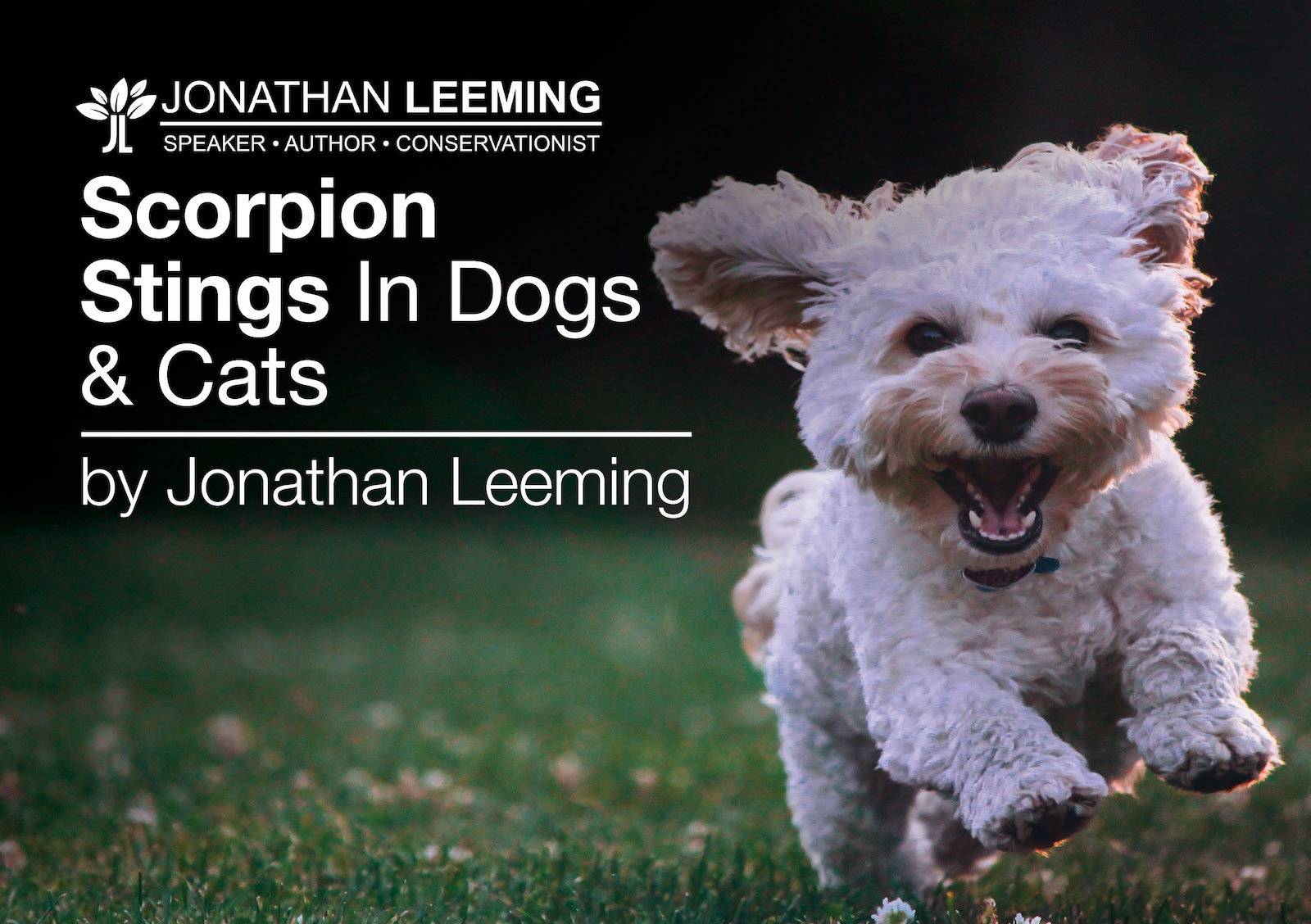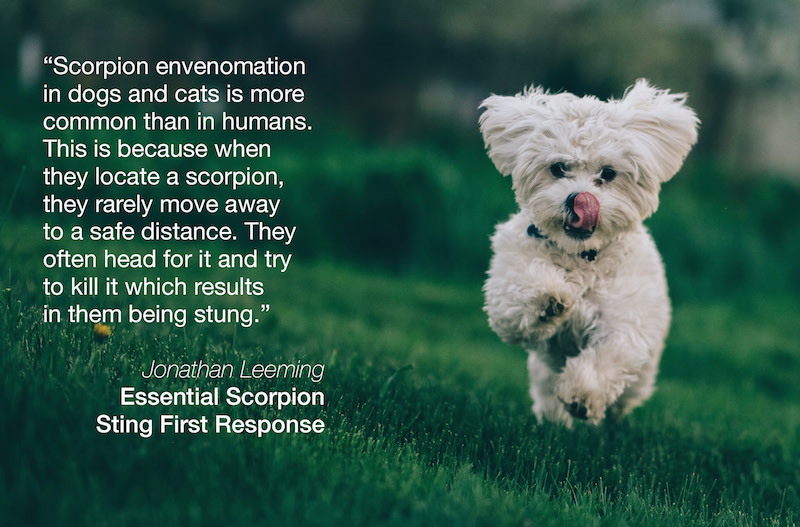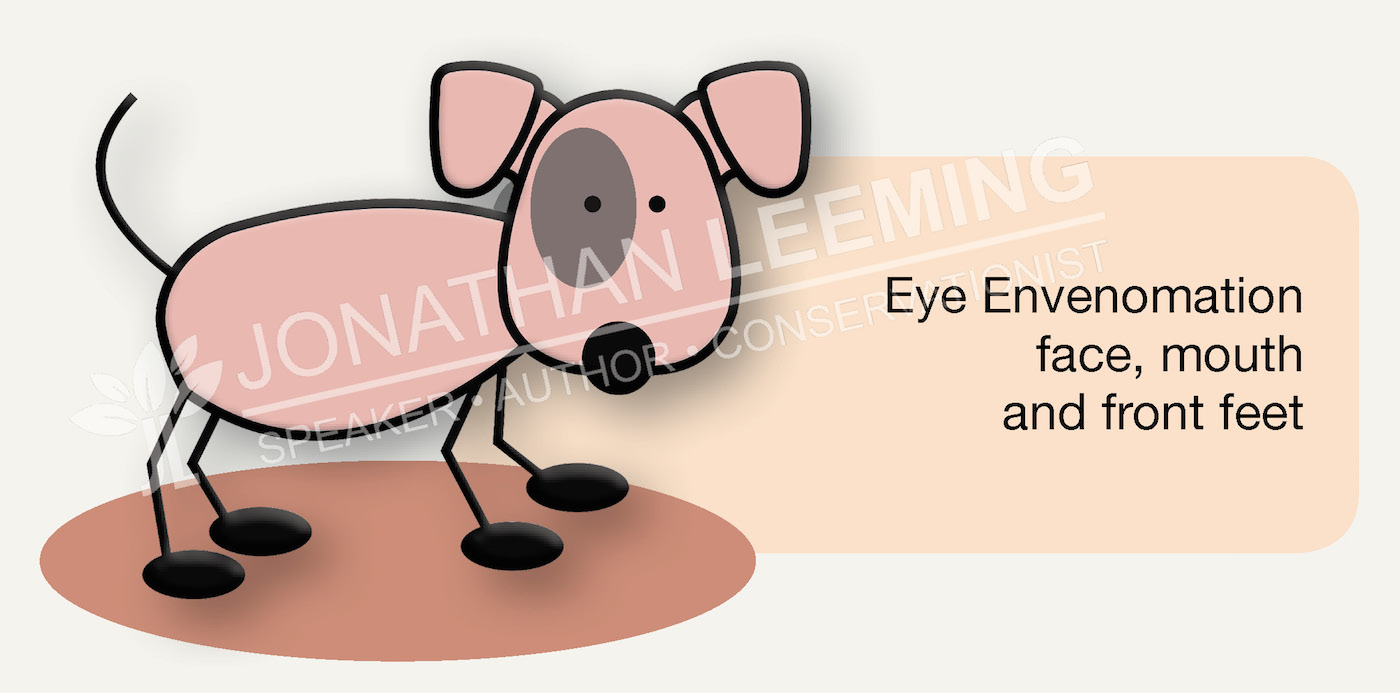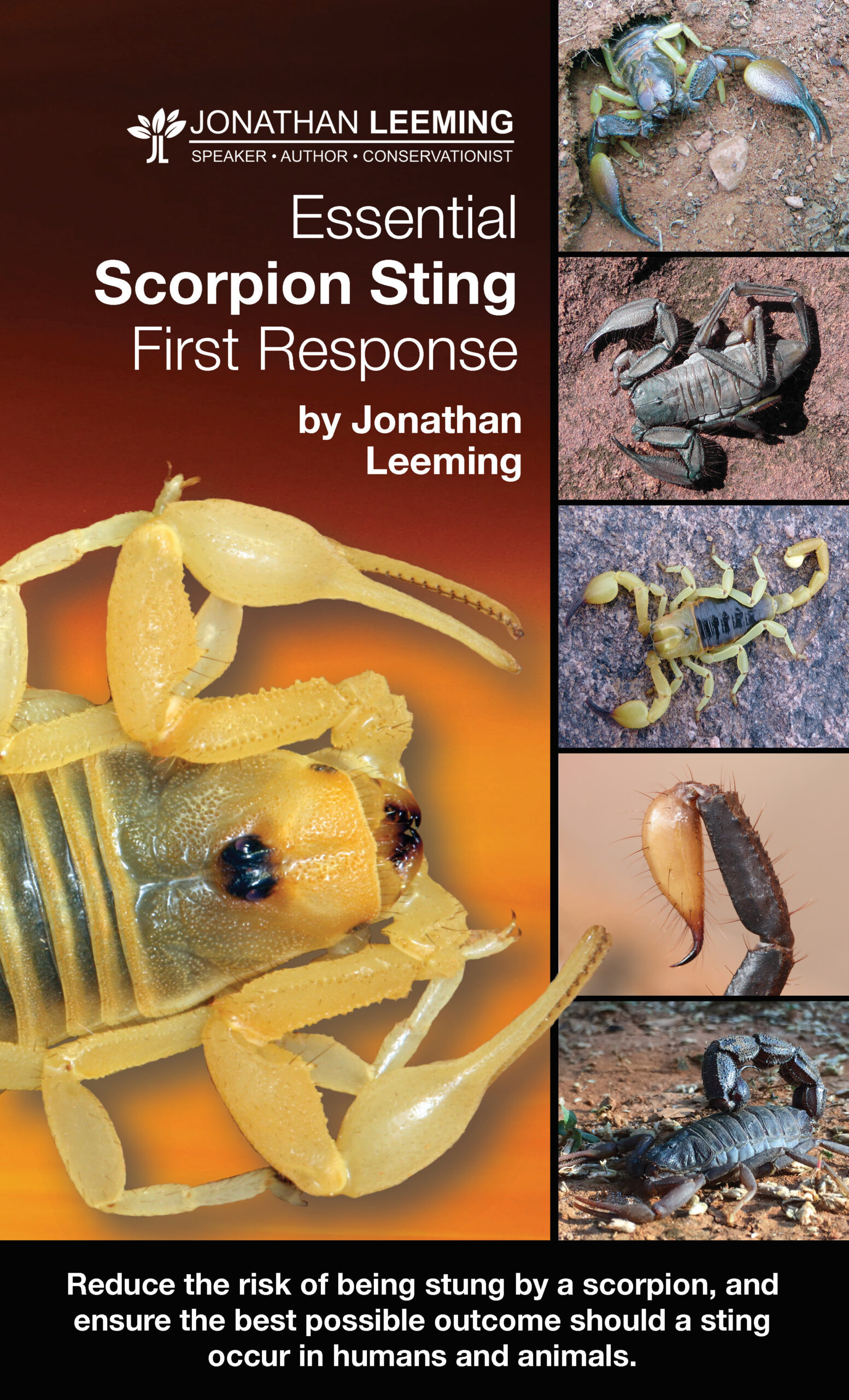
Southern Africa is home to about 150 species of scorpion. Of these species about 16% of species are considered to be high risk, as a sting from them typically requires professional medical attention. Of these species, 3 have caused deaths in humans. Scorpion antivenom is available for the treatment of these species.
Scorpion envenomation in cats and dogs is more common than in humans, but at the same time, often goes undiagnosed. When cats or dogs locate a scorpion, they rarely move away to a safe distance. They often head for it and try to kill it which results in them being stung.
Although this section focuses upon domestic cats and dogs, the associated principles and factors influencing symptoms severity, apply to all mammalian animals (humans, domestic and wild). It has to be noted that scorpion stings in wild animals are not well studied because of the difficultly in collecting reliable data.

There are similarities between how the factors that influence symptoms severity relate to humans and animals. The important differences that influence the outcome of a sting are the following:

Diagnosis is based upon signs of agitation and abnormal behaviour. The following symptoms are an indication of a scorpion sting:
Only 2 species of scorpion are known to be capable of spraying venom. With an animals head being close to the ground, the animals eyes are an easy target for scorpions that can spray venom. The quicker venom is washed out of the eyes with clean water (for 10 to 15 minutes), the better. Once venom is washed out of the animals eyes, full recovery may take 3 or more days.
Although it is illegal to give a human expired antivenom, it is acceptable to administer expired antivenom to an animal. Tests have demonstrated that SAVP antivenom is still highly effective past its expiry date.
It is only by interpreting an animals behaviour that the severity of symptoms can be evaluated.
I'm on a mission to reduce the burden of spider bites and scorpion stings across Southern Africa!
Newsletter | Public Events | Books & Workbooks | Presentations | Activities |Professional Development | Shop

